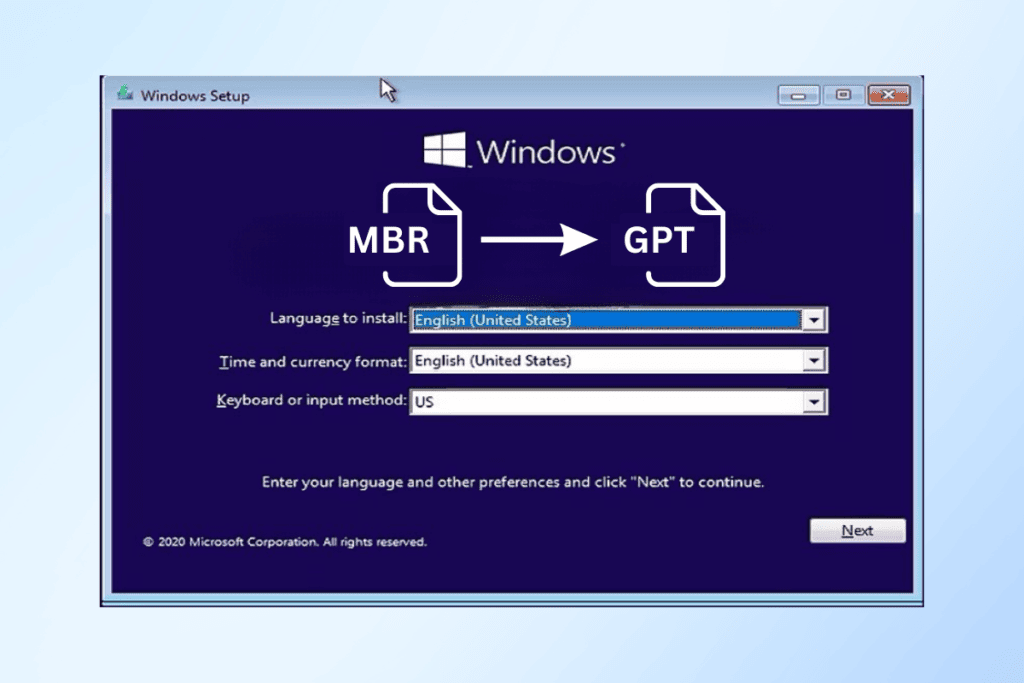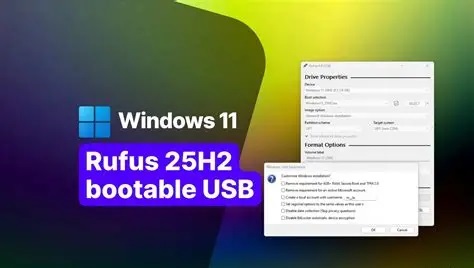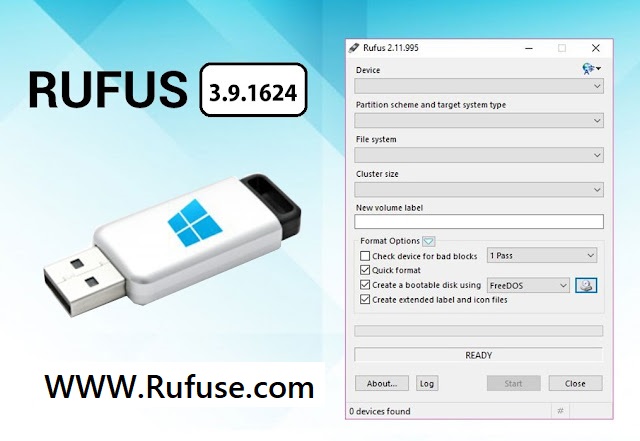Rufus stands as a powerful, open-source tool designed to create bootable USB drives, widely used for installing operating systems like Windows and Linux. A common question among users is whether Rufus supports UEFI (Unified Extensible Firmware Interface) and GPT (GUID Partition Table) schemes, critical for modern hardware compatibility. This lightweight utility, available primarily for Windows and usable on Linux via compatibility layers, delivers robust support for these technologies, making it a go-to solution.
UEFI and GPT are essential for modern computing, replacing legacy BIOS and MBR (Master Boot Record) systems to support larger drives and secure booting. Rufus excels in preparing USB drives that align with these standards, ensuring seamless installations on contemporary devices. Its ability to handle UEFI firmware and GPT partitioning caters to both casual users upgrading systems and IT professionals managing complex deployments across diverse hardware.
This guide dives into Rufus’s support for UEFI and GPT, exploring its configuration options, compatibility features, and practical applications. From creating Windows 11 bootable drives to crafting Linux live USBs, Rufus offers flexibility and reliability. Readers will gain a clear understanding of how Rufus leverages these technologies, its advanced settings, and tips for optimizing bootable media creation for modern systems.
Understanding Rufus’s Core Capabilities
Overview of Rufus Functionality
Rufus is a free, open-source utility designed to format and create bootable USB drives for various operating systems. It supports ISO files for Windows, Linux, and diagnostic tools, transforming standard USBs into installation media. Its lightweight design ensures fast performance, even on older hardware. For UEFI and GPT, Rufus automatically detects system requirements, streamlining the process. This makes it ideal for users preparing modern bootable media.
Compatibility with Modern Systems
Rufus supports both UEFI and legacy BIOS, ensuring versatility across hardware generations. It handles GPT and MBR partition schemes, adapting to the target device’s firmware. This compatibility enables users to create bootable drives for new UEFI-based systems or older BIOS-based machines. Regular updates keep Rufus aligned with evolving standards, making it reliable for diverse applications, from personal upgrades to professional IT tasks.
User-Friendly Interface
The Rufus interface simplifies complex tasks like configuring UEFI and GPT settings. Users select an ISO, choose the partition scheme, and let Rufus handle the rest. Clear options for UEFI or BIOS booting eliminate guesswork. Its intuitive design caters to beginners while offering advanced settings for experts, ensuring accessibility. This balance makes Rufus a preferred tool for creating bootable media efficiently.
Rufus and UEFI Support
Full UEFI Compatibility
Rufus provides robust support for UEFI, enabling bootable USBs for systems requiring modern firmware. It configures drives to boot in UEFI mode, essential for Windows 11 and many Linux distributions. Users can enable secure boot compatibility, ensuring seamless installations on modern hardware. Key UEFI features include:
- Automatic UEFI detection
- Secure boot support
- Compatibility with Windows and Linux
- Adjustable boot parameters
- Support for hybrid ISOs This ensures Rufus meets modern system requirements.
Configuring UEFI Boot Settings
Rufus allows users to select UEFI-specific settings during USB preparation. Options include choosing UEFI-only or UEFI/BIOS hybrid modes, catering to diverse hardware. It automatically adjusts the bootloader to align with UEFI standards, reducing errors. Advanced users can tweak settings like secure boot or firmware-specific parameters. This flexibility ensures bootable drives work flawlessly on UEFI-based systems, from laptops to servers.
Handling Secure Boot
Secure boot, a UEFI feature, restricts unauthorized bootloaders for enhanced security. Rufus supports secure boot by preparing USBs with compatible bootloaders, ensuring Windows 11 installations proceed without disabling this feature. It also supports Linux distributions with secure boot compatibility, such as Ubuntu. This capability eliminates common hurdles, making Rufus a reliable choice for creating secure, UEFI-compliant bootable media for modern devices.
Rufus and GPT Partition Schemes
GPT Partition Support
Rufus fully supports GPT partition schemes, crucial for UEFI systems and drives larger than 2TB. When creating bootable USBs, users can select GPT as the partition scheme, ensuring compatibility with modern hardware. Rufus formats the USB accordingly, aligning with GPT standards for reliable booting. This feature is vital for installing operating systems on high-capacity drives or advanced systems requiring GPT.
Differences Between GPT and MBR
GPT offers advantages over MBR, including support for larger drives and more partitions. Rufus allows users to choose between GPT for UEFI systems or MBR for legacy BIOS setups. GPT supports up to 128 partitions and is more robust against data corruption. Rufus’s ability to handle both schemes ensures flexibility, catering to users working with older or newer hardware configurations seamlessly.
Configuring GPT in Rufus
Configuring GPT in Rufus is straightforward, with options presented during the USB creation process. Users select GPT under the partition scheme dropdown, and Rufus formats the drive accordingly. It ensures the USB is bootable on UEFI systems with GPT requirements. The process is quick, with clear prompts guiding users, making it accessible for beginners while offering precision for advanced configurations.
Practical Applications of UEFI and GPT in Rufus
Creating Windows 11 Bootable Drives
Windows 11 requires UEFI and GPT for installation on most modern systems, along with secure boot and TPM 2.0. Rufus simplifies this by offering a dedicated option to bypass these requirements for testing purposes or preparing standard UEFI/GPT-compliant drives. Users can select a Windows 11 ISO, choose GPT, and enable UEFI settings, creating a bootable USB in minutes. This streamlines upgrades or clean installations.
- Windows 11 ISO support
- UEFI and GPT configuration
- Secure boot compatibility
- Optional TPM bypass
- Fast USB preparation This ensures smooth Windows 11 deployments.
Preparing Linux Live USBs
Rufus supports creating Linux live USBs with UEFI and GPT compatibility for distributions like Ubuntu, Fedora, or Debian. Users select the ISO, choose GPT, and configure UEFI settings for seamless booting. Some distros support persistent storage, allowing data retention. This is ideal for testing Linux or deploying it on UEFI-based systems, making Rufus a versatile tool for Linux enthusiasts.
Supporting Diagnostic Tools
Rufus can prepare UEFI/GPT-compliant USBs for diagnostic tools like MemTest86 or Ultimate Boot CD. These tools often require UEFI booting on modern hardware, and Rufus ensures compatibility. Users select the tool’s ISO, choose GPT, and configure UEFI settings, creating a reliable diagnostic USB. This is crucial for IT professionals troubleshooting hardware issues on contemporary systems without relying on optical media.
Advanced Features for UEFI and GPT
Custom Bootloader Configurations
Rufus allows advanced users to customize bootloader settings for UEFI and GPT environments. It supports GRUB, Syslinux, and other bootloaders, enabling tweaks for specific Linux or diagnostic tool requirements. Users can adjust boot parameters for network booting or custom kernels, enhancing flexibility. Key advanced features include:
- GRUB and Syslinux support
- Custom kernel parameters
- Network boot options
- UEFI-specific bootloader tweaks
- GPT partition optimization This caters to complex deployment needs.
Bad Block Detection for Reliability
Rufus includes a bad block check to ensure USB drives are error-free before creating UEFI/GPT bootable media. This feature scans for defective sectors, preventing installation failures on faulty drives. It’s particularly useful for GPT drives, which require high reliability due to their complexity. The scan provides a health report, ensuring users can trust their USB for critical tasks like OS installations.
Multi-Boot USB Support
Rufus integrates with tools like YUMI or Ventoy to create multi-boot USBs with UEFI and GPT support. This allows multiple ISOs (e.g., Windows, Linux, diagnostics) on a single drive, all configured for UEFI booting. Users select GPT for compatibility, and Rufus ensures proper formatting. This is ideal for IT professionals managing multiple systems, offering a single USB for diverse tasks.
Troubleshooting and Community Support
Resolving UEFI Boot Issues
Rufus users may encounter UEFI boot issues due to hardware quirks or misconfigurations. Rufus provides detailed logs to diagnose problems, such as incompatible ISOs or secure boot conflicts. Users can adjust settings like disabling secure boot or switching to hybrid mode. The interface offers clear error messages, guiding users to solutions, ensuring successful UEFI/GPT USB creation.
Handling GPT Configuration Errors
GPT-related errors, like partition mismatches, can occur when preparing USBs. Rufus’s interface flags issues, such as selecting MBR for a UEFI system, and suggests corrections. Users can reformat the drive or adjust settings to align with GPT requirements. The tool’s automatic detection minimizes errors, but manual tweaks are available for advanced users, ensuring reliable GPT configurations.
Leveraging Community Resources
Rufus benefits from an active open-source community, with forums, GitHub discussions, and tutorials available. Users facing UEFI or GPT issues can find solutions through community guides or developer updates. The community contributes to feature enhancements, ensuring Rufus stays compatible with new UEFI and GPT standards. This support network makes Rufus accessible and reliable for all skill levels.
Conclusion
Rufus robustly supports UEFI and GPT partition schemes, enabling seamless creation of bootable USBs for modern systems. Its compatibility with Windows, Linux, and diagnostic tools, coupled with advanced features like custom bootloaders and bad block detection, ensures reliability.
The intuitive interface and active community support make it accessible for all users. Rufus remains a top choice for crafting UEFI/GPT-compliant media, streamlining installations and troubleshooting efficiently.



